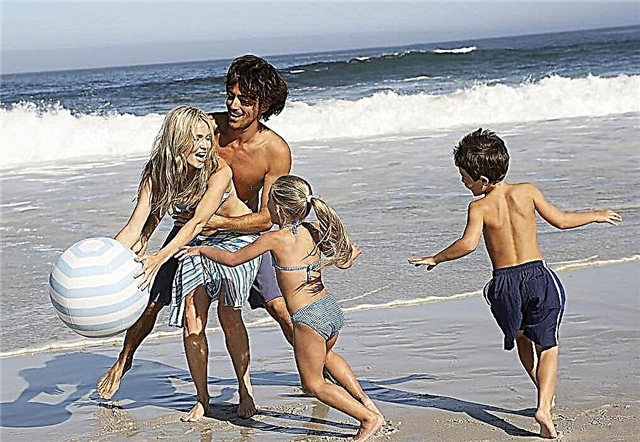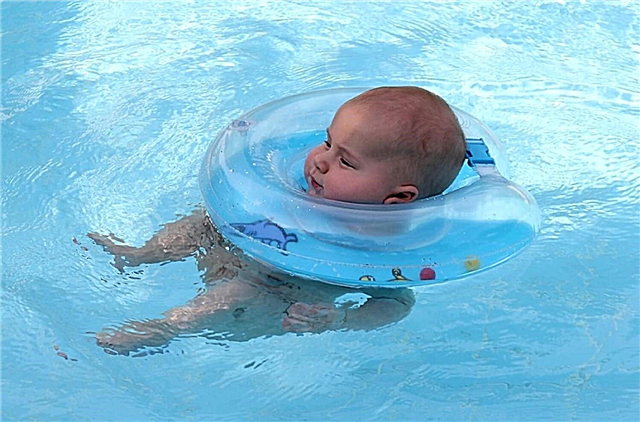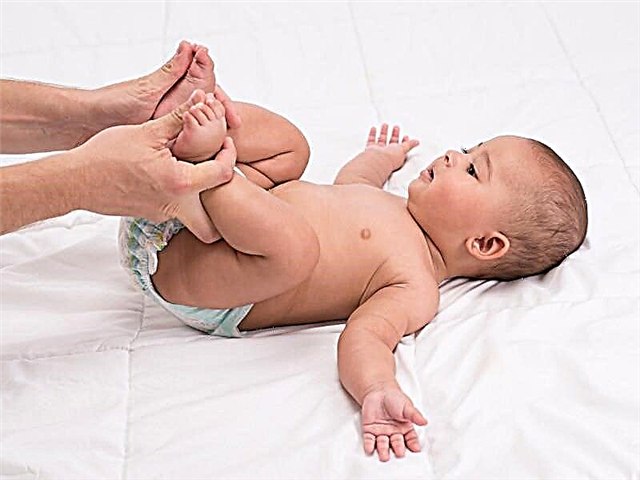The new mother has a fragile psyche. She is very vulnerable and often worries, even if it seems to us that there is no reason for this. She may lose peace and sleep only because someone made a harmless remark to her. What can we say about those well-wishers who are always ready to poke a mistake with their nose and teach how to deal with a child correctly. Do you need to listen to this advice, and are all the teachings so good?

For most mothers, especially very young ones, the first year of a child's life is a continuous examination for compliance with the parent's "position". In this case, the examiners are not only family members and doctors, but also strangers who, for some reason, decided to share their personal experience regarding the upbringing and care of the baby (feeding, swaddling, bathing). Moreover, the advisers have so different views on these issues that they directly contradict each other.
Your mother tells you how to correctly and how often you need to apply the baby to your breast, but from the first days of her life she fed you "Baby", and your mother-in-law constantly quotes Spock. The spouse's sister is a highly qualified family expert only because she works as a nurse in the department of neurosurgery for adults. And the neighbor with three children is an ardent supporter of natural parenting. And everyone advises, lectures and points out mistakes.
There is only one rule - do not listen to everything that is said, even if your advisor has more experience than yours and looks very competent.
1. You need to weigh the baby daily before and after feeding
Heed this advice and you will lose your calm. And excitement leads to the release of adrenaline into the bloodstream, which suppresses the action of oxytocin, a hormone involved in milk production. Anxiety can also be passed on in a rush to the baby.
The baby's weight increases unstably. He pees and poops, eats and spits up. Moreover, for one feeding, he can suck out more milk, and for another - less. Usually, children eat a lot after walking, swimming or before bedtime. And after waking up, their appetite does not have time to play out, so feeding after sleep is more likely a way to communicate with mom, to be closer to her.
It is enough to weigh the baby once a month, and if in doubt about a good increase - once a week. This should be done on the same scales (most mothers do this at a pediatrician).
2. A good mother should breastfeed her baby for at least a year
It is true that breast milk is the best mother can give to a child. But breastfeeding should bring pleasure not only to the baby, but also to his mother. Otherwise, nothing will work. Don't breastfeed your baby just because your mom wants you to. Don't blame yourself if you feed him a quality formula. Do you spend a lot of time with him and do not deprive him of bodily contact with you?
3. The child should not be taught to use a dummy, otherwise the bite will deteriorate
Previously, dentists and orthodontists were really against pacifiers, which, in their opinion, contributed to the malocclusion. But now they themselves are advocating their use. Only they recommend not for ordinary (round) nipples, but special (drop), with a slightly sloped top. The use of an orthodontic pacifier is a good prevention of underdevelopment of the lower jaw, because in order to grab it, the child must push the lower jaw forward.

In a baby, in the first months after birth, the sucking reflex prevails over all others. You can satisfy it by giving a pacifier after feeding. A sense of proportion is important here. A growing and developing child needs to get to know the world, tasting everything that comes into his hands. He will need to learn to express and control emotions, as well as develop his own voice. And for all this it is necessary that his mouth was free.
According to some experts, let the baby suck his thumb better. Then he will have to pull it out of his mouth to pick up objects, hug and learn to crawl. And adults will not be able to use such a "pacifier" to keep the house quiet.
4. So that the child is not dependent and capricious, he needs to be allowed to cry
Science knows more about children today than it did when everyone tried to imitate Dr. Spock. For harmonious growth and development, children need not only a strict daily routine and proper nutrition, but also affection for loved ones, care and human warmth. Scientists have shown that meeting all the demands of a newborn, which he expresses through crying, contributes to the development of a sense of security. Namely, it forms in the baby such qualities as independence and self-confidence.
In the first three months of life, it is especially important to respond immediately to any crying from a newborn. Be sure to take him in your arms! For some children, to calm down, it is enough to hear their mother's voice, while others need to be constantly worn on their hands, in a backpack or sling. It depends on the temperament of the baby, the psychological atmosphere in the family, as well as on the internal state of the mother. Therefore, she, like all other family members, should be calm. And can calmness be maintained if the baby, red from strain, roars heart-rendingly in the crib, and his mother, having listened to the “advice” of his elders, sits in the bathroom and, under the sound of water, convinces herself that all this is an important condition for the formation of an integral personality.
5. You need to walk with your child every day and in any weather
Walking in the fresh air, especially outside the city or in a forest park, is very useful for both the baby and the mother. But everything needs a measure. If it's hard frost outside, hardly anyone wants to have a picnic. Don't blame yourself if you didn't go for a walk because there is a nasty drizzle, strong wind, blizzard or sweltering heat outside ... You are a mother, not a Viking.
[sc name = ”rsa”]
6. The first complementary food should be introduced at 3 months
About 20 years ago, pediatricians recommended diversifying the infant's menu as early as 3 months of age. From this time on, it should include vegetables, fruits, meat, fish and other products. However, studies that have been carried out over the past 10-15 years have shown that the introduction of most foods into the baby's diet before 5 months increases the risk of developing allergies. Fish, eggs, some vegetables and fruits, as well as foods containing gluten are especially dangerous in this regard. Today, WHO claims that breast milk is the best food for an infant under 6 months of age.

7. Home-cooked food is healthier than store-bought canned food
Don't make excuses for yourself if you decide that you will be feeding your child with baby food from the store. Jar puree has a balanced composition, calculated based on the needs of children of different age groups. It contains exactly as much protein, vitamins, sugar, salt and other components as the baby can assimilate. If you combine baby food with breastfeeding, this is generally ideal. If you feed the crumb with a mixture, then you can always diversify the store "mashed potatoes" with something of your own: a piece of fruit, homemade cottage cheese, casserole or mashed berries. But for sure, baby food from cans is safer for a child than adult food from a common table.
8. Bathing should precede a night's sleep
There are no hard and fast rules regarding this issue. Some babies like to splash in the bathtub in the evening, while others like to take a shower during the day. The thing is that water affects babies in different ways. For some it calms and relaxes, while for others it invigorates. Therefore, you know best when to bathe your baby. It is only important that bathing is not immediately after eating. And all the more, there is no need to wait for the onset of night if the baby is dirty, or he wants to cool off on a hot summer day.
9. You can bring down the temperature by bathing the baby in water, the temperature of which is 2about below the one shown by the thermometer
Pediatricians agree that this is an unsafe and ineffective method of dealing with fever. An increase in body temperature is a protective reaction of the body that helps to cope with the disease faster. But the temperature is too high (above 38 about for a baby) is dangerous, so it should not go unnoticed.
Sometimes the body temperature rises from overheating. This happens if the baby is too warmly dressed. Put the thermometer on 30 minutes after removing excess clothing (leave your bodysuit or diaper on it to prevent a lot of moisture loss, which can even cause dehydration). If the temperature remains high, and the child is 2 months or more, then give him an antipyretic agent (children's Paracetamol or Nurofen). If this does not help, then call the doctor at home. Also, medical attention is needed for diarrhea and vomiting and if the baby is under two months old.
10. The child must walk "big" at least once a day
Stool frequency in infants varies greatly. And that's okay. Some children empty their bowels up to 7-8 times a day, while others - 2-3 times a week. This does not mean that the baby is in trouble. But you should know the symptoms of constipation. These include hard pea stools and pain during bowel movements (the baby cries).
To eliminate constipation, which happens, for example, after the introduction of complementary foods, you can use a circular massage of the abdomen or gymnastics. And if the baby does not eat anything except breast milk, then the mother should check her menu. For formula-fed babies, in this case, special milk formulas are shown, which include dietary fiber - prebiotics.
11. The sooner a child is potty trained, the better.
In order for the baby to be able to maintain hygiene and cleanliness on his own, he must at least be able to control his body, in particular, the muscles of the anus and the sphincters of the rectum. But conscious control over them is formed by about 2 years (give or take a few months). Modern pediatrics compares early potting, which has been promoted in the past, with training. This is unnatural, because this approach does not take into account the individual rate of growth and development of the infant.

It's good that the times when one of the conditions for admitting a baby to a nursery was his ability to use the pot on his own are over. However, our grandmothers and mothers still remember horror stories about how children who did not want to poop twice a day were given enemas, tubes and even bars of soap. Keep your baby's butt away from those who remain a supporter of such methods.
12. For the baby to learn to walk faster, he needs to be put in a walker
Question one: why rush? The time will come, and the child will go by himself. If you really can't wait to see the first steps, then there are other ways to encourage your baby's energy.
Question two: is the walker really safe? On this score, the opinions of pediatricians are divided. Some believe that this is a harmless device, while others are sure that it not only reduces the family budget, but also increases the risk of incorrect posture. The child's center of gravity shifts in the walker, so it will be difficult for him to maintain balance when learning to walk.
It is also believed that if you abuse the walker, you run the risk of problems such as flat feet or curved legs. Perhaps the risk is not worth it, and it is better to get a car or cart that the baby can push in front of him. However, if your child has already managed to make friends with a walker, you can not upset him, forcing him to forget about this "fun". It is enough to moderate the time that the little one spends in them: no more than 30 minutes a day.
13. By the first year, the child should already learn to walk
This is what everyone around us is saying. What will not be told to a mother walking with a one-year-old child, it is important to sit in a stroller! Others are sure that in a year it is time for children to play catch-up, as it should be for everyone at this age. However, the concept of individual development has not yet taken root in the minds of our fellow citizens: the child "must" - and that's the point.
There is no need to make a guilty face every time and explain to an unenlightened "advisor" that the time when the baby starts to walk depends on many factors. These include not only muscle tone, but also temperament, as well as the desire of the child himself. According to statistics, the average age at which children begin to take their first steps is 12-15 months, but not 9-10, as they try to convince you.
Stay calm and do not get into a skirmish with advisers and lovers of debate near the sandbox. Planned examinations by a pediatrician, whose opinion you trust, as well as modern literature for young mothers, will help you with this. It doesn't matter what others think is "right": the main thing is that your baby is full and cheerful.
- 5 useful tips for a novice mom
- 7 stupid tips from strangers for a young mom
- 7 unnecessary parental fears
- 5 types of moms who annoy everyone on the internet
- 10 ways to get rid of the complex "I'm a bad mom"
- 15 things good grandmothers don't say



